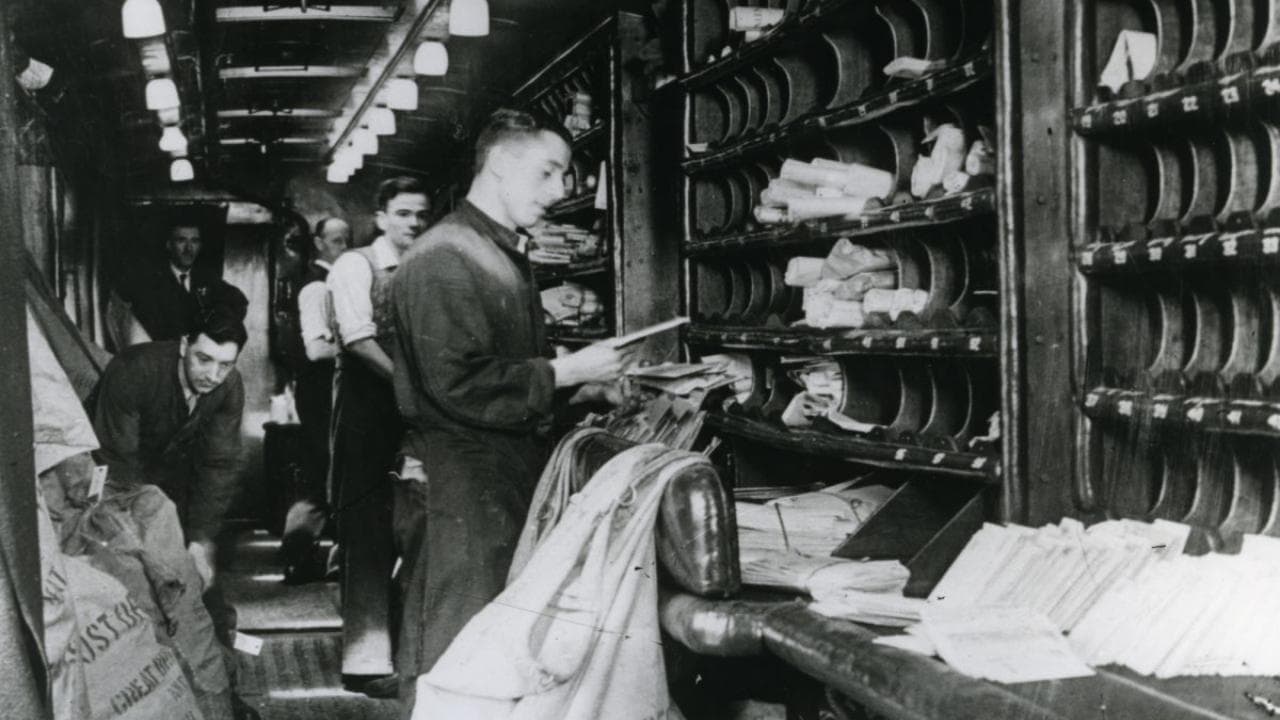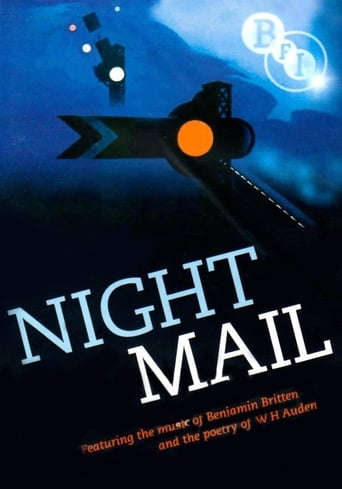Interesteg
What makes it different from others?
SoftInloveRox
Horrible, fascist and poorly acted
SanEat
A film with more than the usual spoiler issues. Talking about it in any detail feels akin to handing you a gift-wrapped present and saying, "I hope you like it -- It's a thriller about a diabolical secret experiment."
Joanna Mccarty
Amazing worth wacthing. So good. Biased but well made with many good points.
MARIO GAUCI
Unlike the WAR COMES TO America (1945) entry in the WHY WE FIGHT documentary series, this famed British effort in a comparable – if longer-running and, decidedly, less enthusing – cycle of "Transport" films has not stood well the test of time. I was even tempted to shave off another half-a-star to its rating, but I guess – much like a normal movie – one needs to assess such items within the context of the time in which they were made. In its case, too, one has to consider what it was attempting to do – both narratively (a depiction of the train service, often dependent on split-second timing, run at night by the Post Office throughout the United Kingdom) and technically (still, though much has been said of its adherence to the celebrated montage – generally frantic and frequently symbolic – typified by classic Soviet cinema, this is only intermittently evident here!). However, the justifiably lauded finale – edited to the rhythm of a W.H. Auden poem – remains exhilarating to watch. For what it is worth, a certain amount of nostalgia played into this viewing – not only because we are basically watching a way-of-life that is fast approaching extinction (in the face of the technological wonders of our age), but due to the fact that my father used to work as a postman and, as a kid, I spent a good many Summer's day both at his office and on the road, observing and even helping out in the daily distribution of the local and international mail!
tomgillespie2002
From 1933, the GPO (General Post Office) Film Unit produced many documentaries, inspired by the likes of Nanook of the North, to promote their service. The films had many talented British film-makers working for them, including the likes of Basil Wright and Alberto Cavalcanti (both on the production team here), and have recently been released in three DVD collector's editions by the British Film Institute. As well as producing some damn fine films, they are key works in understanding the mentality and living conditions of a Britain long gone, when we took pride in our work. They are both uplifting in their detail and wholly depressing given the state of Britain today. I'm only 27 and feel this way, so God knows what the old folk must think.Night Mail follows the midnight postal train from London to Scotland, looking at various things such as the sorting room, the loading of the train, and the inspired way of collecting mail from various places by catching the bags at high speeds in a retracting net. The last ten minutes features a now famous poem by W.H. Auden, read to the music of Benjamin Britten, that is read rhythmically to the sounds of the train. Starting slow, it gradually picks up pace as the train gets faster, and ends at a breathless pace.Finishing at around the 30 minute mark, it leaves a great impression regardless of its slight running time. As mentioned before, it manages to capture the spirit of old Britain, and of a time when our public services were actually efficient. Now, the Post Office seems to lose more mail than it delivers, and if you're lucky to catch a train that arrives on time, you have the pleasure in sitting near some gormless scumbag listening to his s**t dance music out loud, or some lazy fat single mother who won't deal with their screaming baby. But anyway, the quality of the film-making is often overwhelming for a documentary short, using interesting camera angles, lovely cinematography, and informative narration. I was surprised to see that the average user rating for this on IMDb is 6.8, considering this is one of the best, and most important documentaries to come out Britain. Ever.www.the-wrath-of-blog.blogspot.com
JohnHowardReid
Here, courtesy of an excellent DVD from The British Film Institute, is the real-life counterpart of "The Flying Scot". Produced by John Grierson for the General Post Office Film Unit, brilliantly directed by Harry Watt and Basil Wright, "Night Mail" is a short account (25 minutes) of the special train – literally a traveling post office – that made a 365 nights-a-year journey from Euston station in London to Glasgow in Scotland in the 1930s and beyond. (The film was released by Associated British in 1936). With carriages staffed by the real mail sorters, it's impossible to separate the studio material from actuality. The only giveaways are the snatches of dialogue which have obviously been post-synced by professionals under the direction of Alberto Cavalcanti. True, in almost all cases, the directors have taken great care to cleverly obscure the mouths of the workers, but their accents are undoubtedly those of actors akin to the credited off-camera commentators, Stuart Legg and John Grierson himself.Many people have praised the Benjamin Britten score and the brief poem by W.H. Auden, but for me, the chief joys of the film lay in the cinematography by Chick Fowle and Jonah Jones. Just about the whole movie was shot at night as the train speeds through unusually bleak, blighted landscapes, which give this film a distinctive, noirish quality that is reinforced by the smelters, mills and smoke-stacks of Scotland's dismally sterile, impersonal and uninviting factory towns.
Fong-4
Anyone interested in Auden's poetry will find this film well worth seeing. Benjamin Britten, with whom Auden was romantically involved at the time, wrote the music. In order to sync words and music, much of Auden's original text had to be excised.

